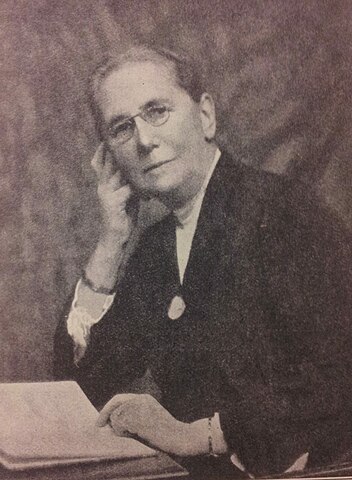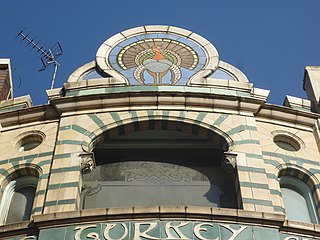
This post was written by Jonathan Cardy, Wikimedia UK’s GLAM Organiser
We’ve run a few editathons now and we know some of the things to expect, and some of the things that can go wrong.
Conway Hall on Thursday, 8 August was a bit of an experiment for us, our first evening editathon, and with at least half an eye on London commuters. It was also the first time I came to an editathon armed with a mobile WiFi hotspot or a universal laptop charger.
Our hosts supplied us with a lovely large room and had very good WiFi. Thus far how very like the Royal Opera House (minus the liveried footmen), though the decor was somewhat less sumptuous and here I was host, IT support and catering. I just had time to reorganise all the tables and chairs from boardroom to cafe style, with a table over each electricity point, before the rush started.
Conway Hall’s archivist had put out a collection of reference books, biographies and so forth, many looking venerable and probably long out of print. Of course that meant a no tea and coffee rule on any of the desks where the old books were being used. Luckily, the adjacent kitchen served as a break room.
As usual, we’d brought one more laptop than we had bookings for, but on this occasion we could have used more – I should perhaps have guessed that Conway Hall’s predominately elderly membership might include several people who’d popped in, curious to see what it was all about. I could have used four spare laptops.
This was far from the first time someone had forgotten their power cable, but it was the first time I could approach them with a handful of power adaptors saying “great, I’ve been hoping to try this out, lets see which head fits” and set them up with a universal power supply. We should have one as standard for this sort of event.
One awkward moment came when a newish editor who’d had some past experience with overhasty deletion taggers, started an article in a sandbox, and someone who couldn’t make it to the evening saw the redlink and helped out by adding a stub. A quick merge solved things, but I think we need to warn against sandboxes for similar events. But with six separate tables, each with two to five people, we managed far fewer edit conflicts by focusing on a different article per table, than in the days when the whole editathon focused on just one article.
About twenty people took part, ranging from newbies to very experienced editors, but this time included some in between.
Articles created included Hypatia Bradlaugh Bonner and Harriet Law, so we made a bit of a contribution to addressing Wikipedia’s gendergap problem. One thing we realised is that a two hour session is more suitable for creating and improving stubs than for already complete articles.
Overall I think the event was a success, and I think we should run more such London evening events.
Particular thanks to our hosts including Sillypunk and Skeptic sid, and our trainers de jour including Philafrenzy, Edwardx and RHaworth.
Jonathan Cardy is Wikimedia UK’s GLAM organiser, organising Wiki events with Galleries, Libraries, Archives and Museums. If you know of an archive that would contemplate a similar event then please drop him a line – jonathan.cardy@wikimedia.org.uk












